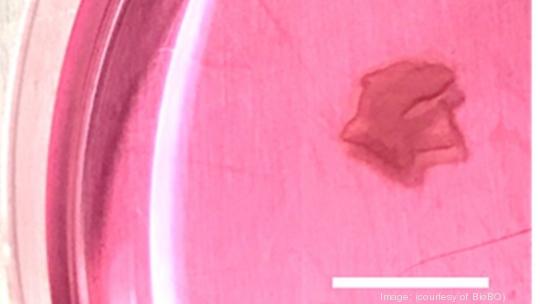
BioBQ wants to be the first company to grow cell-based Texas barbecue.
Katie Kam, the co-founder and CEO, became “fascinated” with cell-based meat in 2017. She started BioBQ the next year and spent 2019 meeting people in the field “basically trying to pull together a team.”
“Cell-based meat is the idea that instead of having to raise an entire animal and slaughter it, you take a few cells from the animal, and culture them so they keep growing in the lab,” Kam said.
Kam is working with a University of Texas at Austin assistant professor of cellular and biomolecular engineer, Janet Zoldan.
Zoldan’s lab has worked on ways to regenerate human cardiac tissue, creating “scaffolds” for human cardiac cells to grow on. Growing cell-based meat is a similar endeavor, Kam said.
“I began a partnership with her, and we’ve been working together since the fall of 2019,” Kam said.
BioBQ has applied for funding from the National Science Foundation’s Small Business Innovation Research program. Kam said the startup should know by the end of the year if it will receive help from the agency. If it doesn’t, BioBQ will begin looking at other funding sources, she said.
One way BioBQ is different from other cell-based meat companies, Kam said, is its technology detaches the “scaffold” on which meat grows.
“Some researchers are looking at scaffolds that remain with the meat — such as growing cells on textured soy proteins. The textured soy proteins would remain with the meat,” she explained.
BioBQ’s technology — we won’t go into details because of proprietary concerns — allows cells to detach from the scaffold with a change in temperature.
“I don’t know of anyone taking this particular approach,” Kam said.
Other companies are working on cell-based meats, but “none of them have gone to market yet. The ones that I’ve seen, they look pretty close to the real thing,” Kam said.
They taste close to the real thing, too, and cell-based meats can be grown to be healthier than regular meat, she said.
BioBQ has been working on beef jerky and beef brisket.
A San Francisco company recently invited people to come try cell-based bacon at a local restaurant, she said.
“The easiest meat to grow is your ground meat. Sausage, hamburger, meatballs, chicken nuggets. Those are the first things being developed and tested,” Kam said.
BioBQ participated in the Student Entrepreneur Acceleration and Launch program at UT.
“We were introduced to some great mentors and advisers who have really helped us with our NSF application and steps we need to take to move forward,” said Kam, who graduated with a doctorate in engineering in 2012 from UT.
Kam has her own civil engineering firm, “and that’s what I’m doing until I get BioBQ going full time,” she said.
BioBQ is working to identify a place to have its own lab. One potential option, Kam said, is the Austin Community College Bioscience Incubator.
“If we get the NSF funding, we would have a lab at the beginning of 2021. If we get funding before then, we would jump on the opportunity to get lab space and get started this year,” Kam said.





